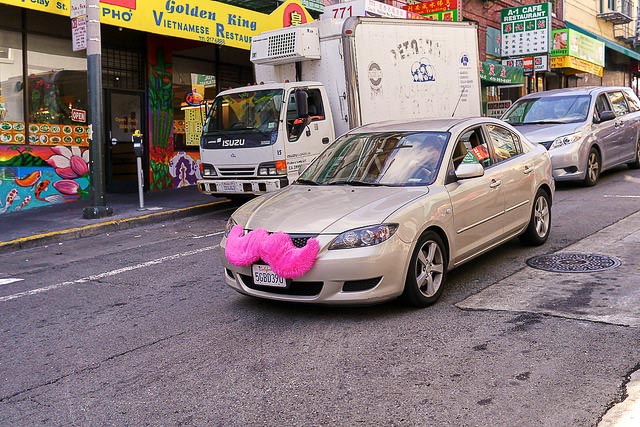While the Urban Edge strives to provide readers with daily news and insights about urban policy, we’re also voracious readers of city news ourselves. As part of a new weekly feature, Senior Editor Ryan Holeywell highlights the week’s most interesting articles from around the web about urban policy and city life.
GM & Lyft Are Teaming Up To Build Self-Driving Cars — And Take Down Uber
Vox breaks down the ramifications of GM's $500 million investment in Lyft, the rideshare service that's often overshadowed by its larger competitor Uber. One of the biggest takeaways is that the transaction offers further evidence that the future of self-driving cars is in rentals, not ownership. The deal comes on the heels of the recent Ford-Google partnership designed to foster development of self-driving vehicles.
Why Bike Lanes Make People Mad
Bike lanes, fairly or not, have become symbols of gentrification. Canadian researchers look at the link between the two in a new analysis of data from Portland and Chicago, Washington Post's Wonkblog reports. Their study raises serious questions: is the introduction of bike infrastructure a catalyst for changing a neighborhood, or is it a sign that process of change is already unfolding?
America’s Great Fitness Divide
Urbanist Richard Florida makes the case in City Lab that American cities face a serious fitness divide that's rooted in socioeconomics. He notes that cities' fitness levels closely correlate with their levels of education as well as income. Conversely, there's a negative link between a city's level of fitness and the number of blue collar workers it has. "As beneficial as exercise and mindful eating may be, the overall health of our lifestyles is not just the product of a series of good decisions," Florida writes. "It is also the result of how our culture and society is structured."
A Young Mayor's Fight to Save Los Angeles From Its Gridlocked Self
Newsweek profiles Los Angeles Mayor Eric Garcetti and his quest to create "the first postmodern city." As he works to make the city less dominated by cars and more accessible to pedestrians, Garcetti says he's keenly aware that cities across the country are watching him. If he's successful, they may wind up following his lead.
Can Trees Help Cool Our Cities Down?
Advocates often call for the planting of trees in urban areas in hopes of mitigating the effects of "urban heat islands." But proving that trees have a cooling effect in cities is tricky. A British researcher argues in City Metric/The Conversation that the phenomenon of "evapotranspiration" is responsible for the cooling effect.
See How Big the 'Gig' Economy Really Is
Time magazine sheds light on our growing "gig," economy, which increasingly relies on part-timers rather than full employees. A striking 22 percent of Americans offer their services in the sharing economy, which consumers seem to enjoy but may be placing pressure on workers. Nearly 60 percent of those providing services in the "sharing economy" -- which tend to be young people who are racial minorities -- said the industry is exploiting a lack of regulation.

